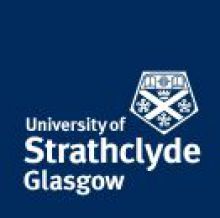An academic who paid £2,500 to attend a “predatory” conference in Canada has told how its organiser fled the event after angry delegates demanded their money back.
Jane Essex, a lecturer in education at the University of Strathclyde, travelled nearly 4,500 miles to Vancouver to give a paper at a conference organised by the World Academy of Science, Engineering and Technology (Waset).
When she arrived at the venue – a single room inside the Holiday Inn – she realised the questionable nature of the event and used her laptop to look further into Waset’s credentials.
Instead of presenting her paper, Dr Essex used her talk to tell delegates that the Waset event was a “predatory conference”, in which multiple “conferences” on unrelated disciplines are loaded into the same symposium. This sparked a confrontation between attendees and the event’s organiser, who was also challenged by hotel staff, according to Dr Essex, who said that police officers were eventually called to deal with the commotion.
“Lots of people were shouting at him and eventually he just walked out of the hotel and didn’t return,” Dr Essex told Times Higher Education.
Dr Essex told THE that she wanted to go public because the “predatory conference” industry relied on victims being shamed into silence, rather than warning others about the problem.
“I could have easily told my colleagues and the university that the event went fine,” she said, adding that Strathclyde had declined her offer to refund its contribution towards the trip’s expense.
The conference fee alone was about £400, although flights and accommodation took the cost of the trip to Vancouver in August to about £2,500, Dr Essex said.
“Until we have a climate where victims can be treated with sympathy, we are not going to flush these people out,” said Dr Essex.
A year ago, THE revealed the experience of Chris Sumner, a London-based cybersecurity expert, who paid £850 to attend a Waset conference in Copenhagen.
That story was followed by a nine-month investigation into the industry by the Germany-based International Consortium of Investigative Journalists, who worked with Mr Sumner to expose the scale of the industry.
It revealed that Waset held about 50,000 “conferences” a year, although they were loaded into about 170 events held in major cities across the world. It also identified about 180,000 papers produced by the five biggest predatory conference organisers, which also run a vast stable of pay-to-publish journals.
That study has sparked action by government agencies across the world, with India’s University Grants Commission asking institutions to review which journals are recognised for promotion and hiring purposes. In South Korea, a special government committee has been convened to look at whether those who list research presented at such conferences should face misconduct charges or should have to return research funds.
However, the industry would only be restrained if predatory conference organisers faced prosecution from regulatory bodies, said Mr Sumner, who pointed to the US Federal Trade Commission’s recent case against Omics, a Hyderabad-based publisher that is behind about 3,000 conferences a year. This case resulted in an injunction against Omics’ US activities.
That case found that the Indian company had used “deceptive marketing practices” to inflict a “net consumer injury” of $50 million (£40 million) since 2011, according to a judgment published in May.
“Academics or universities don’t really want to push these cases on their own because, individually, the losses aren’t huge, but the amounts add up when spread across the sector,” said Mr Sumner.
“We need official bodies to pursue these cases.”
In a statement, Waset said that at the Vancouver event “a small group of people who had already presented their works in the previous sessions started to disturb by shouting and reading false information from blogs and taking pictures of other participants, which is an open attack and offence against personal rights”.
Waset, which denied it was a “predatory” organisation, said that all conference speakers accepted a participation policy which stated that papers in each session were drawn from a range of disciplines.
POSTSCRIPT:
Print headline: ‘Predatory conference’ organiser ‘escapes’ from furious delegates
Register to continue
Why register?
- Registration is free and only takes a moment
- Once registered, you can read 3 articles a month
- Sign up for our newsletter
Subscribe
Or subscribe for unlimited access to:
- Unlimited access to news, views, insights & reviews
- Digital editions
- Digital access to THE’s university and college rankings analysis
Already registered or a current subscriber?









